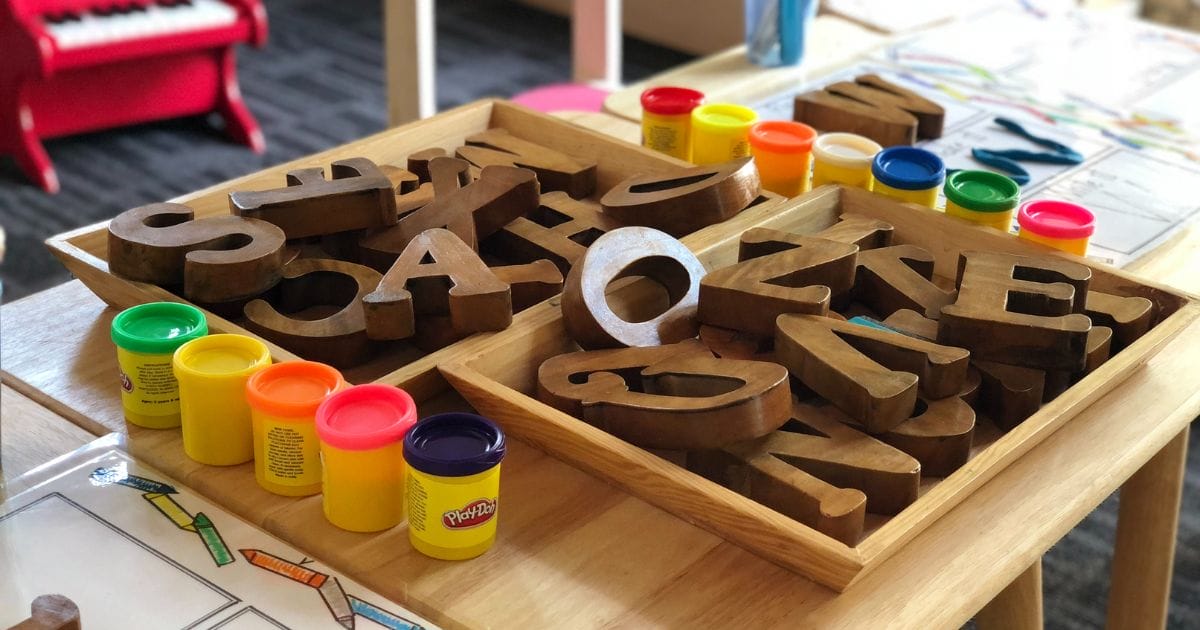More than a dozen early childhood advocates and care providers testified before the legislative study committee.
Rising concerns over a lack of affordable and accessible child care in Indiana bubbled up at the Statehouse Wednesday, prompting calls for new statewide policies that would make it easier for additional care providers to open — without breaking the bank for families.
A legislative panel made up mostly of Hoosier lawmakers heard more than four hours of public testimony from state officials, child care providers and business leaders who all shared a similar message: Indiana needs a more comprehensive system for child care, especially if the state wants to bolster its workforce.

To make that happen, those who testified said the General Assembly should expand eligibility for government-funded vouchers, rethink regulations for child care center licensing, and better incentivize businesses to make care options available to employees.
“I’m flabbergasted by the interest and importance of childcare,” said Republican Sen. Ed Charbonneau, who chairs the Interim Study Committee on Public Health, Behavioral Health, and Human Services. “I think we all know this is an issue. It’s an issue in all capital letters. It is the foundation of so many things that we have going on in the state of Indiana, and it’s one of the building blocks. … We’ve got to have it — we’ve got to have it for economic development.”
Charbonneau, of Valparaiso, emphasized that child care is an “infrastructure issue,” and said his goal is for the committee to “come up with some significant decisions on how we’re going to change things.”
Wednesday’s meeting was the first of three for the summer study committee. The next gatherings are expected in September and October.
Indiana’s child care landscape
Some 763 licensed child care centers are open across the state, according to Indiana’s Family and Social Services Administration (FSSA). The state has issued licenses to another 2,144 home care providers.
More than 700 unlicensed child care ministries are additionally registered in Indiana. Those providers — which some who testified Wednesday said can be more affordable — do not require licensing if they:
- Do not receive regular compensation (including those that are paid by the hour instead of a set amount each week)
- Care only for children who are related to them
- Care for fewer than six children, not including their own children who might be at their home
- Serve migrant children
Indiana also does not require a license for churches or ministries that operate child care programs, although they must pass safety inspections.
Even so, as of 2015, state law sets higher standards for unlicensed child care programs in Indiana that accept federal vouchers.
Any unlicensed program or registered ministry that accepts Child Care Development Fund (CCDF) vouchers must meet certain standards relating to safety, daily activities, nutrition, group size and continuing education for providers.
The federal program helps low-income parents pay for child care so that they can work or attend school.
Courtney Penn, with FSSA’s Office of Early Childhood and Out-of-School Learning, applauded lawmakers for expanding CCDF eligibility to families with a monthly income up to 150% of the federal poverty level — which equals around $45,000 in annual income for a family of four. The increase from 127% of federal poverty was enacted earlier this year and took effect July 1.
Families can stay in the program until their income hits 185%. Children under 13 qualify for care, as do children up to age 18 who have documented special needs.
Penn also pointed to Indiana’s On My Way Pre-K program, which awards vouchers to four year olds from low-income families so they can access high-quality educational programs the year before they begin kindergarten.
Some options, but not enough
But Penn and others said those current programs aren’t doing enough, and that “child care deserts” persist across Indiana.
Rural communities are particularly in need of additional care options, said Anne Emerson, president and CEO of the Perry County Development Corporation. She also serves as volunteer board president for the only licensed child care center in the county of about 19,000.
“The system is broken from every single angle. It does not work for providers. It does not work for parents, and clearly, employers are struggling to find a workforce,” Emerson said.
“There are also a lot of people who are working part time — not in the field that they have training for — because they don’t have access to childcare, and they want to do more to provide more for their family and to be active in the workforce. They simply don’t have the critical infrastructure that will allow them to do that.”
If you want people to work in this field and give everything to those children that they deserve, that those hard-working Hoosier families deserve, find a way to pay us thriving wages.
– Kelly Dawn Jones, child-care provider in Indianapolis
“It’s just really, really hard, and it’s even harder in rural communities where we often have lack or no access to the goods and services that are required to fall within state licensing guidelines,” she continued.
Adam Alson, president of Appleseed Childhood Education in Rensselaer, emphasized, too, that affordable childcare is “essential” for the “survival, growth and economic development of any community,” especially in Indiana’s rural communities.
“However, rural parents’ options for childcare are often limited to either a small number of unlicensed, in-home providers, or a 40-mile drive to the nearest quality child care center. And the cost is impossibly high for many families,” he said. “Young families will neither choose to reside nor stay in communities that do not have the infrastructure they require to live a fulfilling life.”
Alson noted that the cost of providing care in Indiana is approximately $14,000 per child, per year. From the provider standpoint, he said the “vast majority,” or 80%, of those expenses are for labor and personnel costs.
Pay for child care workers on average ranges from $10 to $15 an hour, and in almost all cases does not include benefits, he said. That also makes it increasingly difficult for child care providers to keep adequate staffing — which is needed for centers to remain open.
Kelly Dawn Jones, who runs a home-based child care center run out of a small house in southeast Indianapolis, echoed similar concerns of other small providers who pleaded for lawmakers to send help to underpaid child care workers.
“If you want people to work in this field and give everything to those children that they deserve, that those hard-working Hoosier families deserve, find a way to pay us thriving wages,” Jones said. “This work deserves thriving wages.”
Possible legislative reforms
John Niederman with the Fortitude Fund, which provides grants to entrepreneurs in Northeast Indiana, said “it’s critical” for Indiana to adopt more flexible policies that make childcare a more “attractive” and “viable business opportunity.”
Doing so will increase the number of smaller child care operations, which are often most desired by parents — and are cost effective.
“We have a situation where there’s a demand for small sites, and it’s growing, but the supply of the small sites is diminishing,” Niederman said, advocating for lawmakers to make it easier and faster for small child care operators to get licensed.
Sam Snideman, the vice president of government relations at United Way of Central Indiana who also spoke Wednesday on behalf of Indiana’s Early Education Works Coalition, said the state should earmark additional appropriations to further expand eligibility for subsidized child care. Lawmakers could also duplicate programs in other states that match what employers provide workers for child care costs, he said.
Courtney Hott, director of the Indiana Early Learning Advisory Committee, which is housed within FSSA, said state officials also want to see the state improve learning and readiness for kindergarten. Doing so would require Indiana to increase “the supply and sustainability” of high quality providers, as well as affordability of those resources for vulnerable, low-income families.
“Once we start to improve our capacity, increase affordability, increase our supply of high quality providers, then we can really focus on improving learning and readiness for kindergarten to really see that big return on investment that we’re looking for,” Hott said.
Some of Hott’s specific recommendations included increased reimbursement rates to child care providers and tax credits for businesses that offer help to employees. Penn, with FSSA, said the state’s child care licensing process could also be more efficient if the multiple state agencies involved work together more collaboratively.
“We want to modernize the statutory regulatory environment. Our regulations have not been updated in quite some time,” Hott said. “But we also want to update our licensing system to remove some administrative burdens.”
This article originally appeared on Indiana Capital Chronicle.






